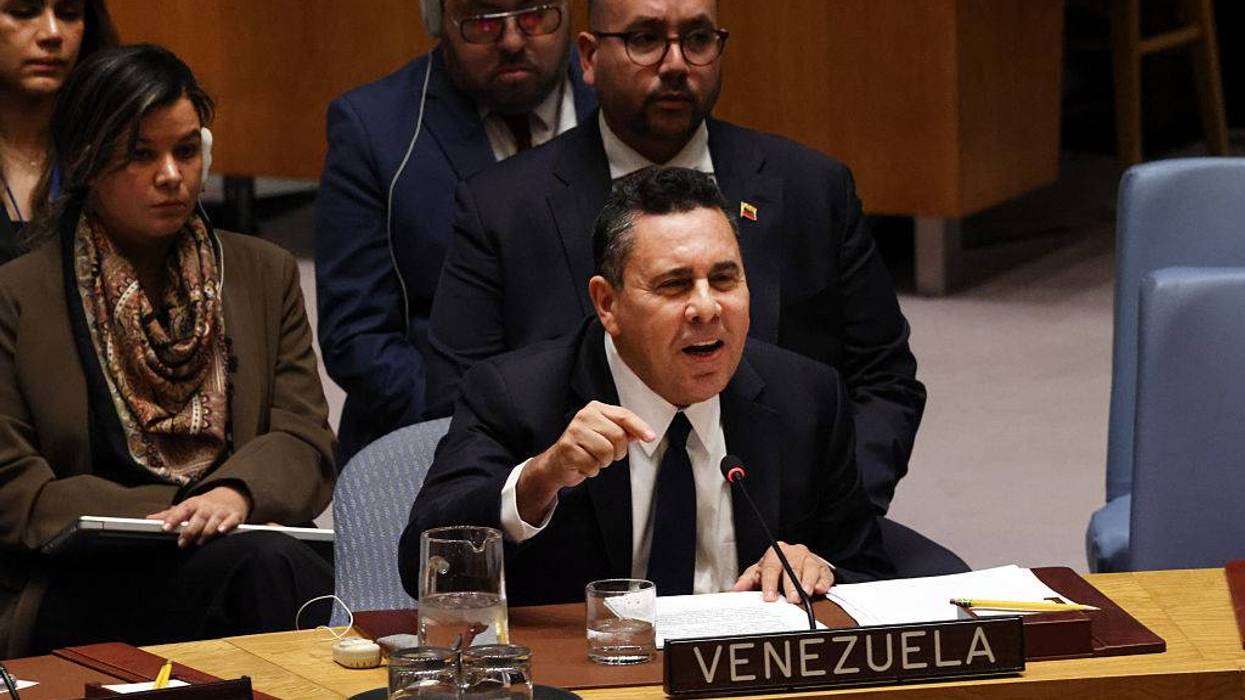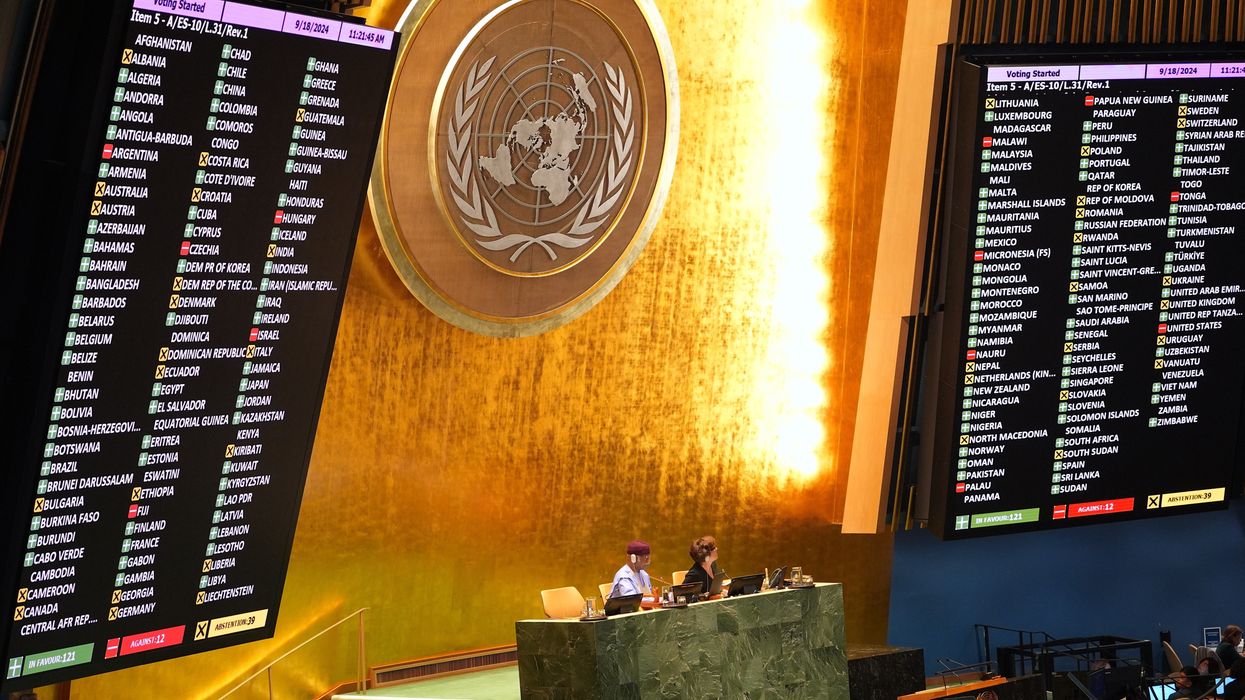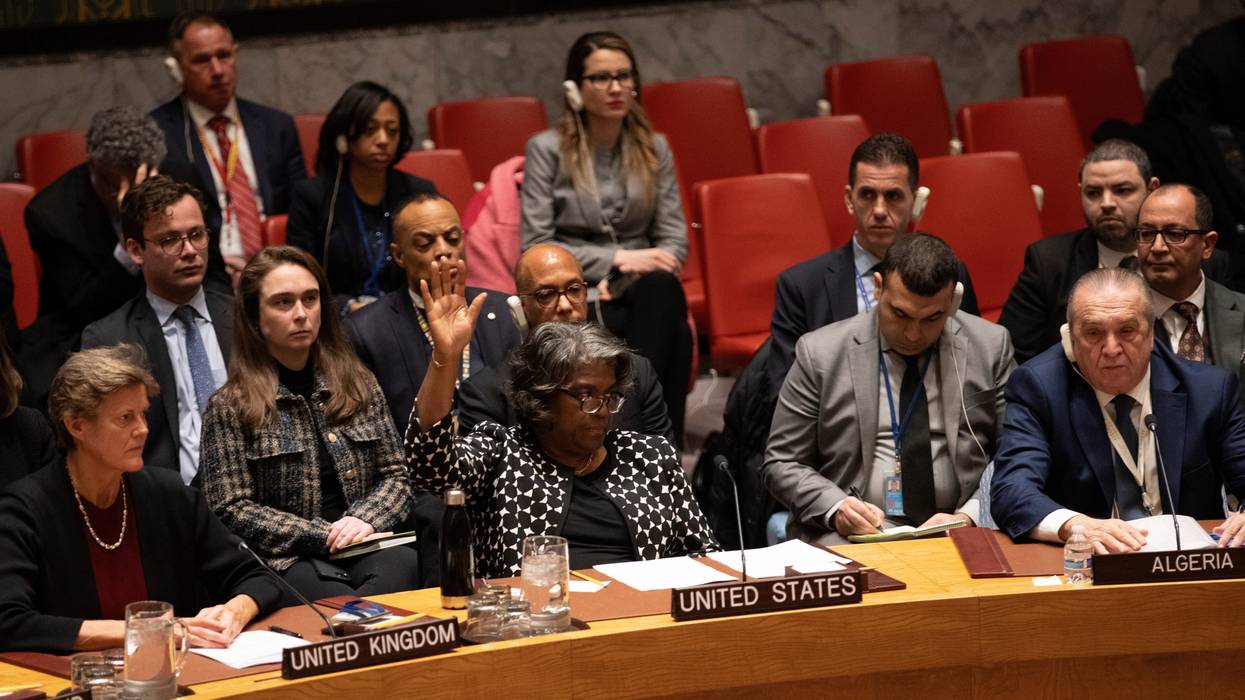Venezuela Calls on UN Security Council to Back Immediate Release of Maduro, Condemn Unlawful US Attack
"Today, it is not only Venezuela's sovereignty that is at stake, but the credibility of international law."
Governments throughout Latin America and beyond on Monday blasted the US military's invasion of Venezuela and its abduction of President Nicolás Maduro during an emergency meeting of the United Nations Security Council.
Samuel Moncada, the permanent representative of Venezuela to the United Nations, demanded that the Security Council call for Maduro's immediate release and condemn the US invasion of his country.
Moncada also warned that President Donald Trump's actions would lead to a dangerous unraveling of international law and return to a system in which militarily strong countries feel free to invade weaker ones with impunity.
"Allowing such acts to go without an effective answer would amount to normalizing the replacement of law by might, while eroding the very foundations of the collective security system," he said. "Today, it is not only Venezuela's sovereignty that is at stake, but the credibility of international law, the authority of this organization, and the validity of the principle that no state can set itself up as a judge, party, and executor of the world order."
Venezuela Ambassador to the @UN Samuel Moncada: "No state can set itself up as a judge, party and executor of the world order...Venezuela is the victim of these attack because of its natural resources." pic.twitter.com/j17sHZk5kA
— CSPAN (@cspan) January 5, 2026
Representatives from several other nations joined Moncada's condemnation of the US invasion.
Sérgio França Danese, permanent representative of Brazil to the United Nations, said that the US military's actions "cross an unacceptable line," and set "an extremely dangerous precedent for the entire international community."
"The acceptance of actions of this nature would inexorably lead to a scenario marked by violence, disorder, and the erosion of multilateralism, to the detriment of international law and institutions," said Danese. "As Brazil has reiterated on numerous occasions, the norms that govern coexistence among states mandatory and universal."
At the UN security council the representative of Brazil condemns the actions of the United States as a flagrant violation of international law and goes on to mention the genocide in Gaza as an example of how international governance mechanisms are being weakened. pic.twitter.com/36tEUoJtAv
— Saul Staniforth (@SaulStaniforth) January 5, 2026
Héctor Enrique Vasconcelos y Cruz, permanent representative of Mexico to the United Nations, said that the US military's actions in Venezuela "must not be allowed," as they "constitute a severe blow to the charter and to multilateralism."
Ernesto Soberón Guzmán, permanent representative of Cuba to the United Nations, accused the US of targeting Venezuela purely for reasons of imperial aggression.
"The US military attack against Venezuela has no justification whatsoever," Guzmán said. "It does not respond to any provocation, nor does it possess legitimacy. It is based on the... doctrine of peace through force, and undermines the stability and peace that had characterized our Latin American and Caribbean region for years."
Guzmán added that the "ultimate objective" of the US operation is "not the false narrative of combating drug trafficking, but control over Venezuela’s natural resources, as has been shamelessly declared by President Trump."
Cuban Representative: Its ultimate objective is not the false narrative of combating drug trafficking, but control over Venezuela’s natural resources as has been shamelessly declared by President Trump and his Secretary of State. pic.twitter.com/FDCJoFcduX
— Acyn (@Acyn) January 5, 2026
Jonathan Passmoor, acting deputy permanent representative of South Africa to the UN, accused the US of dangerously degrading the UN charter with its unprovoked attack on Venezuela.
"We all benefit from a rules-based international order based on international law," said Passmoor. "When we break these norms, we invite anarchy and an environment where might make right, ignoring the complexity of interrelations and interdependence in our modern world."
The South African ambassador also warned of the US setting dangerous precedents that could herald more global conflict.
"The belief that might is right, is reinforced and diplomacy is undermined," he said. "History has repeatedly demonstrated that military invasions against sovereign States yield only instability and deepen crisis."
[ Watch] Statement by the Republic of SouthAfrica to the United Nations Security Council Meeting on the situation in Venezuela delivered by Mr Jonathan Passmoor Acting Deputy Permanent Representative https://t.co/DPPXBKIAxO pic.twitter.com/KuQZdJqBVa
— Chrispin Phiri 🇿🇦 (@Chrispin_JPhiri) January 5, 2026
Trump over the weekend said that the US would be "running" Venezuela for the foreseeable future, although it is not clear how he plans to administer control over the nation given that the rest of Maduro's government, led by Acting President Delcy Rodriguez, remains in control of the state.
Trump told reporters aboard Air Force One on Sunday that Rodriguez would follow US orders or a fate "worse than" Maduro's awaits here.



